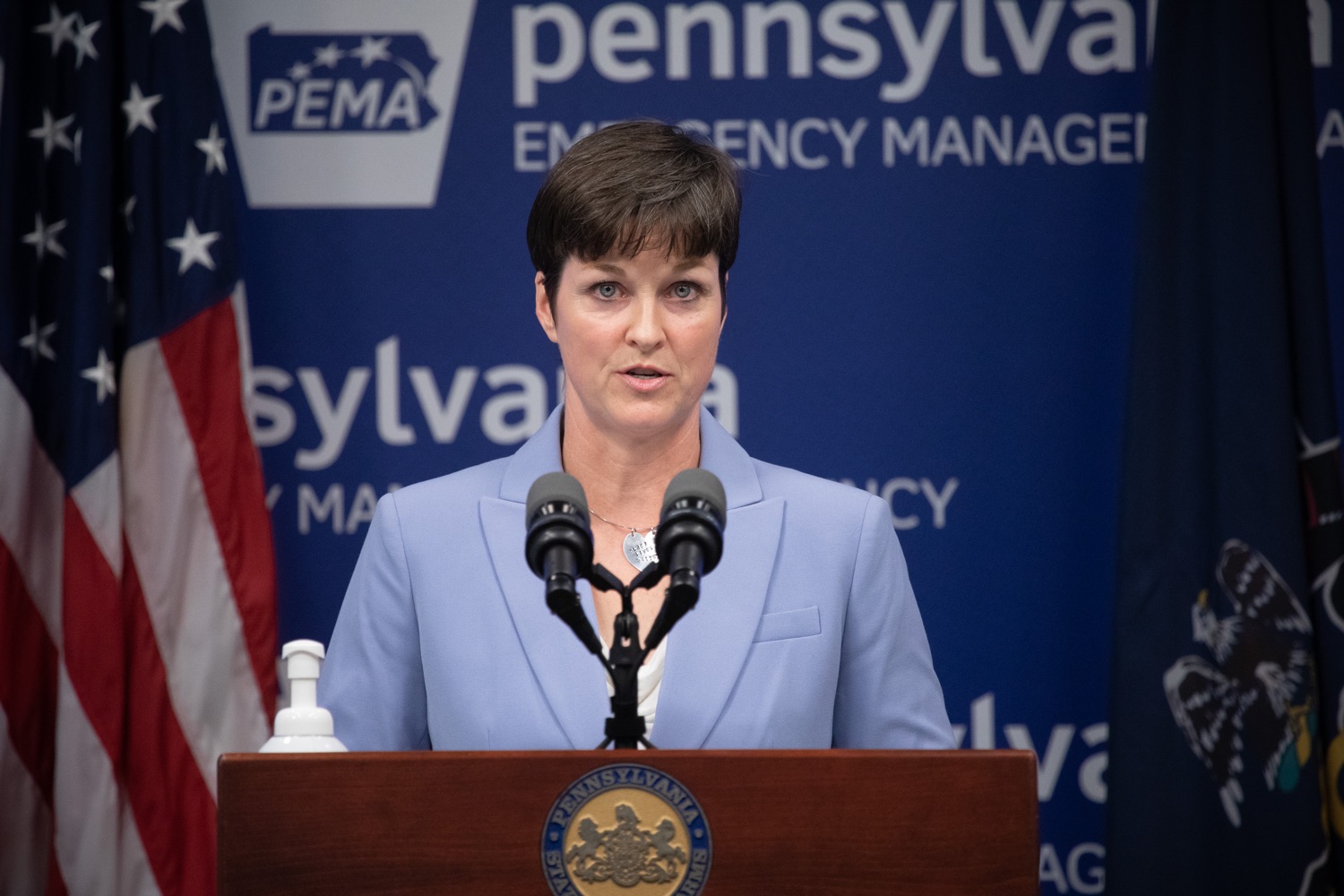
Secretary of Human Services Teresa Miller answers questions from the press.Governor Tom Wolf announced that people with intellectual disabilities and autism and the providers of support services for these vulnerable Pennsylvanians will receive $260 million in CARES Act funding to help continue to provide services during the COVID-19 pandemic. Gov. Wolf was joined by Department of Human Services Secretary Teresa Miller, who outlined to details of funding allocations. JUNE 15, 2020 – HARRISBURG, PA
Harrisburg, PA – Today, Department of Human Services Secretary Teresa Miller announced the distribution of $31.5 million to Pennsylvania direct care workers who have continued to work through the COVID-19 crisis – making it possible for individuals with disabilities and older Pennsylvanians to live safely in their homes and near their families.
“I want to thank all direct care workers who have selflessly continued to aid and support their clients during this difficult time. I want to also acknowledge the participants in the self-directed service models who kept their direct care workers employed throughout this crisis despite the risks of COVID-19 exposure,” Secretary Miller said. “This has been an incredibly difficult time for all of us. But for those who are medically vulnerable and the dedicated professionals who care for them, everyday life has been even more challenging.”
Funded with state and federal dollars from the Coronavirus Aid, Relief, and Economic Security Act – also known as the CARES Act – this compensation has been distributed as a one-time payment to more than 16,200 direct care workers in Pennsylvania employed through the participant-directed employer model. Payments are based on hours worked, and the average payment is $1,730.
The Wolf Administration has also distributed $112 million in CARES Act dollars to agencies that employ direct care workers who provide personal assistance services.
“Direct care workers are a lifeline to low-income senior citizens and individuals with disabilities living in our communities. During the coronavirus crisis, caregivers have relied on disrupted public transportation systems and inadequate personal protective equipment to help their consumers complete the tasks of daily living and live safely in their homes,” said Matthew Yarnell, president of SEIU Healthcare Pennsylvania. “They are our unsung heroes and essential workers every day. This crisis pay is a tremendous victory that recognizes the invaluable role they play in Pennsylvania’s long-term services and supports system.”
Secretary Miller also called on Pennsylvania lawmakers to act to increase Pennsylvania’s stagnant minimum wage. The commonwealth’s current minimum wage of $7.25 per hour is the lowest allowed by federal law and trails most other states in the nation, including all of our surrounding states. Direct care workers would be among the professionals to benefit from the Wolf Administration’s proposal to raise the minimum wage to $12 an hour, with a pathway to $15 an hour.
“We must continue to support this workforce, many of whom work at low or poverty-level minimum wages, as they fill a critical role in our health care system protecting some of the most vulnerable Pennsylvanians who would otherwise struggle to live and care for themselves independently,” Secretary Miller said. “As is too often the case for caregiving professions, direct care workers are paid far less than their labor is worth. Direct care workers deserved a pay raise long before the pandemic, and they deserve it even more now.”

